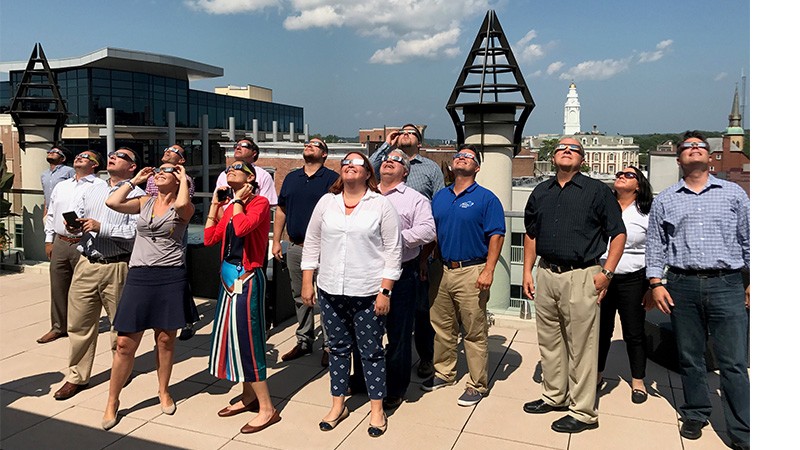Transfinder’s Eclipse Tips: Transporting Students in the Midst of the Eclipse
- Posted By: Robb Snyder
- Category Featured, Blog

The country is abuzz about the total solar eclipse expected to cross North America on April 8, 2024. The U.S. path of the eclipse runs across 15 states, from Dallas, Texas at 1:23pm ET to Caribou, Maine at 2:22pm ET.
A number of schools in the eclipse’s 115-mile path are either having half days or closing altogether to avoid students traveling in in the dark or with potential issues that could be caused by distracted drivers peering at the eclipse.
If your school is staying open, here are some transportation tips to consider:
- Plan Ahead: Yes, we are just a few days out. But see what the timing and path of the eclipse is in your area. If possible, plan your transportation schedule accordingly to avoid being on the road during the peak of the eclipse
- Inform Parents and Students: Keep your parents informed about your plans. If you transportation remains unchanged, let them know. If you are making a change, share that information in multiple areas, through your parent app, like Stopfinder, on your website, on your transportation web page and via email
- Consider Safety Measures: As with every day, during your pre-trip inspections, pay extra attention to all lighting and safety equipment to ensure they are working properly. Consider a meeting with drivers about taking added precautions, similar to tips provided when driving in other poor-visibility conditions.
- Plan for potential traffic congestion as people may stop to view the eclipse. Because of the potential for poor visibility, it may take longer for drivers to complete their routes. Inform parents to be prepared for the potential for late buses.
- If you have a driver app such as Wayfinder, consider adjust the settings for nighttime driving for best viewing.
- Beyond transportation, educate students about the dangers of looking directly at the sun during an eclipse without proper eye protection. If possible, provide protective glasses for students to enjoy the ride in the midst of the eclipse.
- Stay up-to-date with weather forecasts and any relevant safety advisories leading up to and during the eclipse. Be prepared to adjust transportation plans accordingly if weather conditions become hazardous. Inform parents in advance that changes may need to be made.
And take heart, the next total solar eclipse isn’t until Aug. 23, 2044, two decades from now. Today’s students will have nice stories to share with their families about where they were when the total solar eclipse of 2024 took place.



